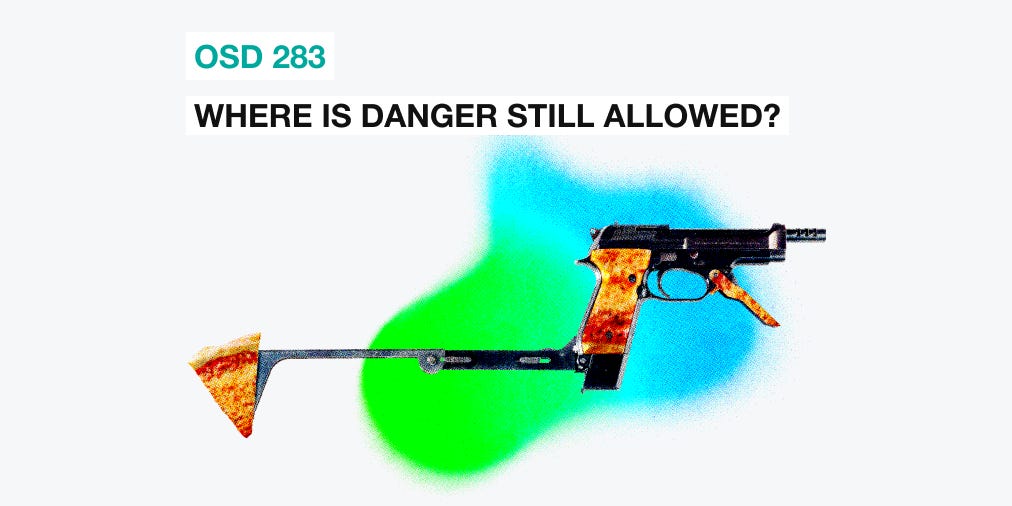Why are motorcycles legal?
If they didn’t exist, and you invented one today, here are the problems you’d have to solve:
Convince people to buy it. All the speed of a track-only race car with all the safety features of a bicycle.
Convince car owners to share the road with these new vehicles. Sometimes the new vehicles will lane-split and everyone is going to have to stay cool.
In the US, you’ll have to convince the DMVs in all 50 states to allow people to register your invention. These are the same DMVs that in some states still ban kei trucks. So good luck with the two-wheeled Chitty Chitty Bang Bang death machine. Oh, and in some states you’ll have to do this on a county-by-county basis.
Stop Congress from banning your invention nationwide when it comes out that the death rate for motorcycles is five times higher than for cars.
If Four Loko couldn’t survive, motorcycles wouldn’t stand a chance.
And yet, fortunately, gloriously, motorcycles are legal. So how do we explain that?
It helps to think about this broadly. Which types of danger are still allowed, and which are banned? We can map out a little 2x2 grid:
The bottom-left quadrant — dangerous and not banned — is where freedom lives. There are three ways to keep things in that quadrant:
Grandfathering. Motorcycles are a good example. By the time the danger was obvious, they’d achieved cultural escape velocity. They have too much inertia to ban now. That’s how Uber, as a scrappy startup, singlehandedly destroyed every century-old taxi cartel in the world. Move fast enough that by the time people notice, you’re unassailable. (More on that in “OSD 268: Guns as effective accelerationism”.)
Lack of a disaster that catalyzes a ban. A crisis is often how things move from not-banned to banned. So without a crisis, the pro-ban movement can’t hit activation energy. Junk food is an example of a danger that remains perfectly legal, but that’s only because Frito-Lay didn’t do a 9/11 (as far as we know). If 50 million people got diabetes overnight, there’d be an unstoppable reflex to Do Something.
Cultural importance. Free speech is the best example here. The US retains uniquely expansive freedom around offensive and untrue speech. There have been plenty of events that could have been catalysts for European-style speech controls, but the cultural self-image around free speech (and the Supreme Court) have, for now, mostly prevented bans.
Are there any examples of things in the bottom-left quadrant that didn’t get there by those mechanisms?
Guns are special in that they have both mechanisms #1 and #3 keeping them in the bottom-left quadrant. And they’re most at-risk in exactly the areas where those mechanisms are weak. E.g. in modern gun designs where grandfathering is weak, or in still-small communities like 3D printing whose mainstream cultural influence is weak.
This same framework works as a roadmap for how to build and retain freedom.
Grandfathering. Innovate so quickly that by the time anyone thinks to ban your innovation, there are irreversible facts on the ground.
Lack of a disaster that catalyzes a ban. The thing that protects against bad uses of powerful things is good uses of powerful things. This is a function of pace of innovation, and getting the powerful thing very widely into the hands of people who will use it for good things. That way if there is some catastrophe, the installed base of positive users will (a) be an existence proof that the thing is good and (b) push back on a ban.
Cultural importance. People need to use the thing, and they also need to talk about using the thing. A vibrant, growing ecosystem has a strong immune system and will be creative against attempts to shut it down. So focus on making the ecosystem vibrant and making it grow.
That’s the roadmap. Let’s go.
We’ll leave you with the tweet that inspired this week’s newsletter:
This week’s links
Brandon Herrera and Garand Thumb recreate the assassination attempt on Donald Trump
The internet’s metabolism continues accelerating.
More about Open Source Defense
Merch
Grab a t-shirt or a sticker and rep OSD.
OSD Discord server
If you like this newsletter and want to talk live with the people behind it, join the Discord server. The OSD team is there along with tons of readers.







I would posit that the danger motorcycles posed was recognized very early, but the cultural willingness to have the government protect people whether they wanted protection or not didn't exist until after they were grandfathered.